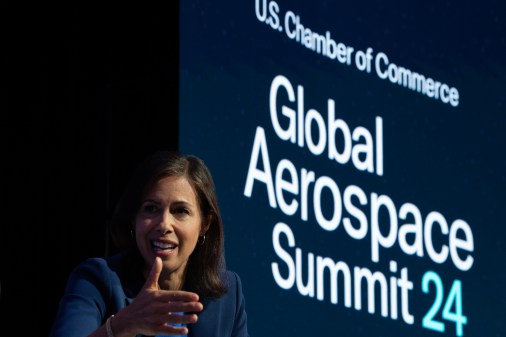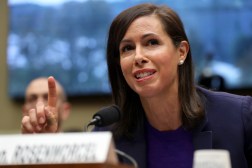FCC raises benchmark for broadband speeds
The Federal Communications Commission voted to redefine the speeds that constitute broadband service Thursday, raising the benchmark to 25 megabits per second per download and 3 Mbps per upload.
The change, which came on a 3-2 vote, raises the definition of broadband from 4 Mbps per download and 1 Mbps per upload.
Set as part of the FCC’s 2015 broadband report, the new benchmark aims to help tribal and rural areas access the high speeds needed to support the growing array of devices that need high bandwidth to work.
“When 80 percent of Americans can access 25/3 [Mbps], that’s a standard,” FCC Chairman Tom Wheeler said. “We have a problem that 20 percent can’t. We have a responsibility to that 20 percent.”
“What is crystal clear to me is that the broadband speeds of yesteryear are woefully inadequate today and beyond,” FCC Commissioner Mignon Clyburn said, adding that the FCC must “make sure that all consumers have access to think life-changing technology.”
Commissioner Jessica Rosenworcel, who voted for the new benchmark, said she hopes the commission will soon move past the benchmark set forth Thursday to one that defines broadband at 100 Mbps.
“Broadband is not just technology, it is a platform for opportunity,” Rosenworcel said. “I, for one, am tired of dreaming small; it’s time to dream big. We can do audacious things if we set big goals, and I think our new threshold, frankly, should be 100 Mbps. I think anything short of that shortchanges our children, our future and our new digital economy.”
The Republican commissioners — Ajit Pai and Michael O’Rielly — dissented, with O’Rielly saying the benchmark goes beyond the speeds needed for most high bandwidth services. Specifically, O’Rielly took issue with a statement in the report that 25 Mbps is needed for Ultra-HD 4K television, which is only in 2 percent of American households.
“4K TV is still relatively new and is not expected to be widely adopted for years to come,” O’Rielly said. “While the statute directs us to look at advanced capability, this stretches the concept to an untenable extreme. Some people, for example, believe probably incorrectly that we are on a path to interplanetary teleportation. Should we include the estimated bandwidth for that as well?”
Pai claimed the benchmark was somewhat arbitrary, saying the commission relied more on 4K stream data and marketing materials from Internet service providers.
“Random factors like these are hardly a competent basis for reasonable policy making,” Pai said.
In a move reminiscent of last month’s open meeting where Wheeler took the Republican commissioners to task for dissent over expanding E-rate subsidies, the chairman said some commissioners were “twisting opinion to avoid the obvious.”
“The facts speak for themselves,” Wheeler said. “Our challenge is not to hide behind self-serving lobbying statements, but to recognize reality and our challenge is to help make that reality available to all.”
The move should force providers to improve their speeds, even as they seem reluctant to do so. The National Cable & Telecommunications Association objected to any changes in broadband definitions in a letter sent to the FCC last week, saying they “dramatically exaggerate the amount of bandwidth needed by the typical broadband user.”
However, the U.S. isn’t exactly a leader in broadband speeds. In Akamai’s latest State of the Internet report, the U.S. came in 12th, averaging a connection of 11.5 Mbps. The FCC’s new benchmark would only help raise that number.





